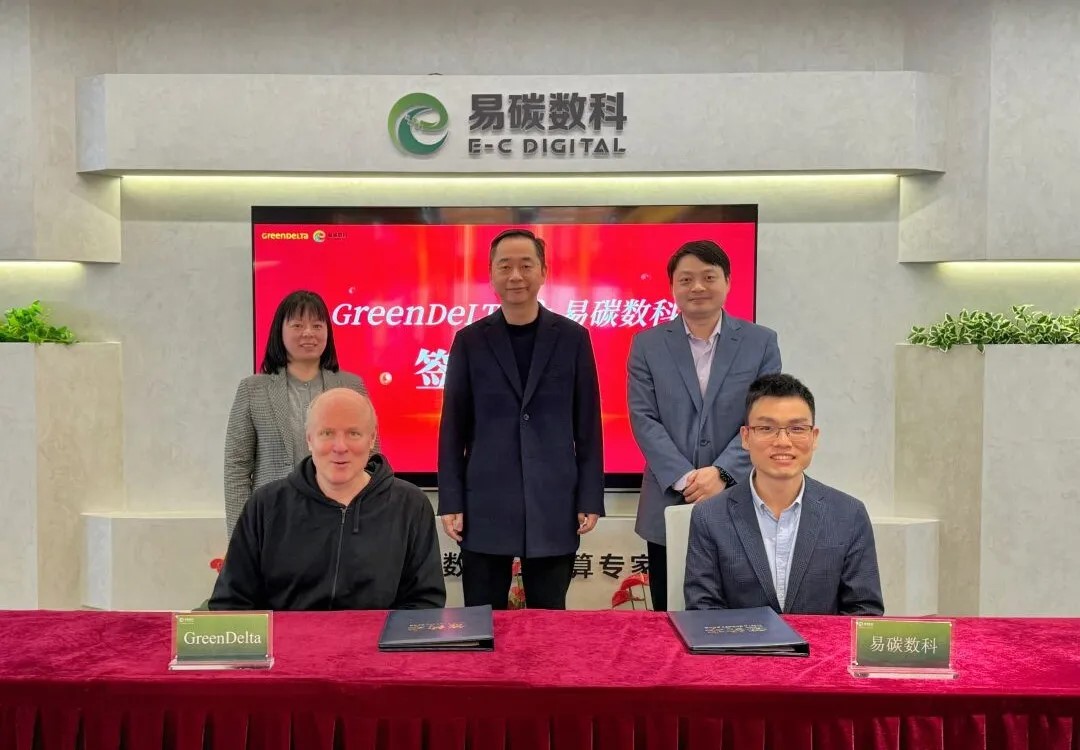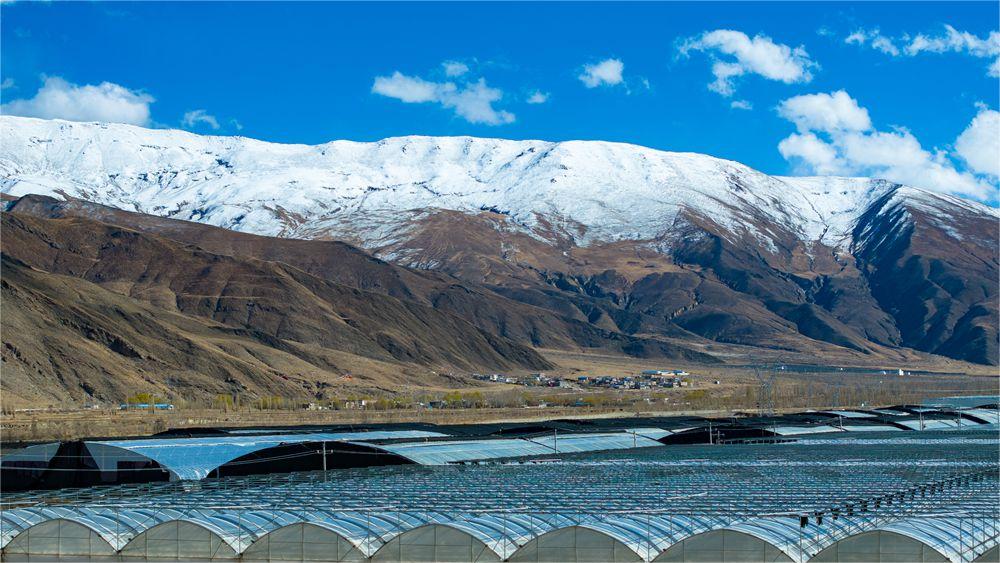Accurate carbon accounting gives leg up to green transition
In a plant of Shanghai Baosteel Packaging Co., Ltd. (Baosteel Packaging), machines were working on a beverage can production line, and the carbon consumption of each manufacturing process was shown in real time on a software on the computer of engineer Wang Zhiyou in an office building 15 kilometers away.
According to Wang, the software JIMU LCA Cloud, developed by Shanghai E-C Digital Technology Co., Ltd. (E-C Digital), can also automatically generate carbon footprint reports of products.

E-C Digital signs a strategic cooperation memorandum of understanding with globally renowned sustainability consulting and software company GreenDelta. (Photo from E-C Digital)
"Carbon accounting was both time- and energy-consuming, and the data were not very precise either. This software is easy to use, convenient and efficient," Wang said.
E-C Digital is an internet company that focuses on cloud computing for quantifying carbon emissions of industrial manufacturers. Though it has a history of only seven years and its products were sold for only less than three years, the company has already helped many enterprises accurately calculate their carbon emissions.
As green and low-carbon development has become a global consensus, different countries and regions, as well as different industry associations, have put forward their own paths to reduce carbon emissions.
Since China set its "dual carbon" goals - reaching the peak of carbon emissions by 2030 and attaining carbon neutrality by 2060 in September 2020, the demand for carbon reduction among Chinese enterprises has grown rapidly in recent years.
The precise quantification of carbon data is a foundational work for enterprises in advancing their green transformation, but its operation is not easy.
To make carbon accounting as simple as "building blocks," E-C Digital went deep into industrial operations, transforming the smallest units, such as equipment units and manufacturing processes into individual "blocks," each of which contains all the relevant data for that process, as well as the logical relationships between the data and between the "blocks." This has truly lowered users' access to precise quantification of carbon data.
In terms of corporate carbon accounting, E-C Digital developed the "JIMU Carbon Cloud" software, which includes built-in carbon accounting methods and models for 24 industries published by China. For product carbon accounting, the company launched the "JIMU LCA Cloud," which supports the development of multiple national-level, industrial-level carbon data management platforms, and those of leading enterprises. The software interface and operations are simple and clear, which means primary-level engineers can become proficient in using the software.
For years, the can-making business unit of Baosteel Packaging had been hesitant about whether to upgrade the water-ring vacuum pumps on their production lines to screw vacuum pumps. Upgrading the equipment would require significant investment, but the water-ring vacuum pumps had high energy consumption and failure rates.
After introducing E-C Digital's software, the company obtained precise data of energy reduction: screw vacuum pumps could save 1,300 kilowatt-hours of electricity per day, and the electricity cost savings would cover the purchase of the new equipment in about a year and a half. With such data support, Baosteel Packaging's equipment upgrade began accelerating in 2022.
Anji, east China's Zhejiang province, is the largest producer of office chairs in China. It is home to a number of small- and medium-sized manufacturing enterprises. However, establishing a dedicated team of carbon accounting engineers is unaffordable for most of them, and purchasing third-party consulting services is generally expensive and time-consuming in terms of report delivery.
Since 2023, office chairs produced in Anji have come with a "carbon label" that showcases the carbon footprint of products' entire lifecycle, which are enabled by E-C Digital.
These carbon labels are developed by E-C Digital in collaboration with the Institute of Service-oriented Manufacturing under the Ministry of Industry and Information Technology. They aim at helping furniture-related small- and medium-sized enterprises in Anji carry out low-cost, efficient, and standardized carbon accounting, and deliver carbon footprint reports complying with relevant standards.
"Reliable carbon footprint reports make our products more competitive," said the head of a furniture company in Anji.
After seven years of development, E-C Digital has grown from a five-person startup team into a high-tech company with over 100 employees. Its business scope has expanded from steel and power to over 30 industries including non-ferrous metals, chemicals, petrochemicals, batteries, and new energy. It provides precise carbon data quantification and overall "dual carbon" solutions to over 1,000 clients through a cloud computing model.
"China has a solid industrial foundation and a massive global trade supply chain system, providing extremely broad application scenarios for carbon quantification software. This is our advantage," said Zhou Jing, chairman of board of E-C Digital.
E-C Digital has become the first non-European Union (EU) provider of carbon quantification tools recognized by the EU's environmental impact assessment mutual recognition platform.
It is reported that multiple international manufacturing clients have contacted E-C Digital, hoping it can help them address carbon footprint information disclosure requirements for the EU market. "Our professionalism has gained international recognition," said Zhou.
Photos
Related Stories
Copyright © 2024 People's Daily Online. All Rights Reserved.









